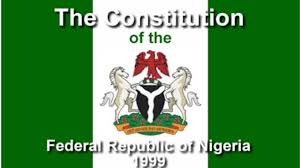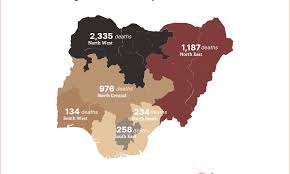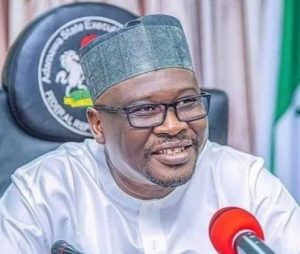THE IMPORTANCE OF ELECTORAL REFORM
Barr. John Apollos Maton
Introduction
Distinguished guests, colleagues, and fellow Nigerians, it is an honour to present this paper on a topic that sits at the very heart of our democracy—electoral reform. Without a credible electoral system, the entire democratic process is undermined. Elections are the vehicle through which the people express their will. If that vehicle is broken or manipulated, then governance becomes a product of imposition, not consent.
Why Electoral Reform Matters
Electoral reform is not just a technical exercise; it is a moral and political necessity. It is the process by which we refine our electoral laws, institutions, and practices to ensure that elections are free, fair, transparent, and inclusive. It is how we build trust in the system and ensure that leadership reflects the true will of the people.
Lessons From India
In this regard, India stands as a remarkable example. Since gaining independence in 1947, India has remained a secular, socialist, and democratic nation with no history of military coups. Despite having over 1.4 billion people and over 800,000 polling units, it successfully conducts the world’s largest elections through an independent body, the Election Commission of India. As Dr. M.S. Gill, a former Chief Election Commissioner of India, explains, their commission maintains neutrality and efficiency, even across vast and difficult terrains. This is a powerful example of what is possible when institutions are respected and empowered.
Nigeria’s Current Electoral Realities
Nigeria, by contrast, continues to struggle with key electoral challenges. The Independent National Electoral Commission (INEC), though designed to be independent, often faces questions about its neutrality and capacity. From flawed voter registers to logistical failures, from allegations of result manipulation to the overwhelming influence of incumbents, these issues erode public confidence and compromise our democracy.
The Consequences of a Broken System
When elections are not credible, the consequences are severe. Citizens become disillusioned, leading to voter apathy and low turnout. Electoral violence becomes more likely. Worse still, the legitimacy of elected leaders is often called into question, setting the stage for governance crises and social unrest. A system that fails to reflect the people’s will is bound to breed instability.
The Call for a Return to the 1963 Constitution
This is why many Nigerians, myself included, are calling for a return to the 1963 Constitution, which provided a more balanced federal structure. Under that framework, Nigeria’s regions operate alluded, are autonomous units, with greater autonomy and accountability. It recognized the ethnic and cultural diversity of the country and built governance structures around it. This model is far more sustainable than our current over-centralized system.
Restructuring as a Component to Resolving Issues—INEC’s Complement to Electoral Reform
Electoral reform alone will not fix Nigeria. It must go hand-in-hand with national restructuring—a deliberate effort to reconfigure the country in a way that is just, equitable, and functional. When power is decentralized and regions are empowered to manage their own affairs, the pressure on federal elections is reduced, and local accountability is strengthened.
Addressing the Core Issues
Without addressing this foundational independence, the structure of the Nigerian federation, and the excessive influence of federal power, our reforms will only touch the surface. The root of our democratic challenges lies in a system that no longer reflects the reality of our people or the promises of our independence.
The Broader Impact of Electoral Reform
If done properly, electoral reform will restore faith in the democratic process. It will foster peaceful transitions of power, reduce political violence, and inspire greater participation from young people and marginalized communities. It will also improve the quality of leadership, since elections would no longer be decided by manipulation or violence, but by the people’s genuine choice.
Conclusion
In conclusion, let me emphasize that electoral reform is urgent, but it cannot stand alone. It must be part of a larger national conversation about constitutional reform, federalism, and justice. We must learn from examples like India, where strong institutions are built on a foundation of democratic values and national unity. If we fail to address the core issues, then everything else—including electoral reform—will be a waste of time. Let us rise to the challenge, for the sake of our democracy and the future of Nigeria.



Post Comment